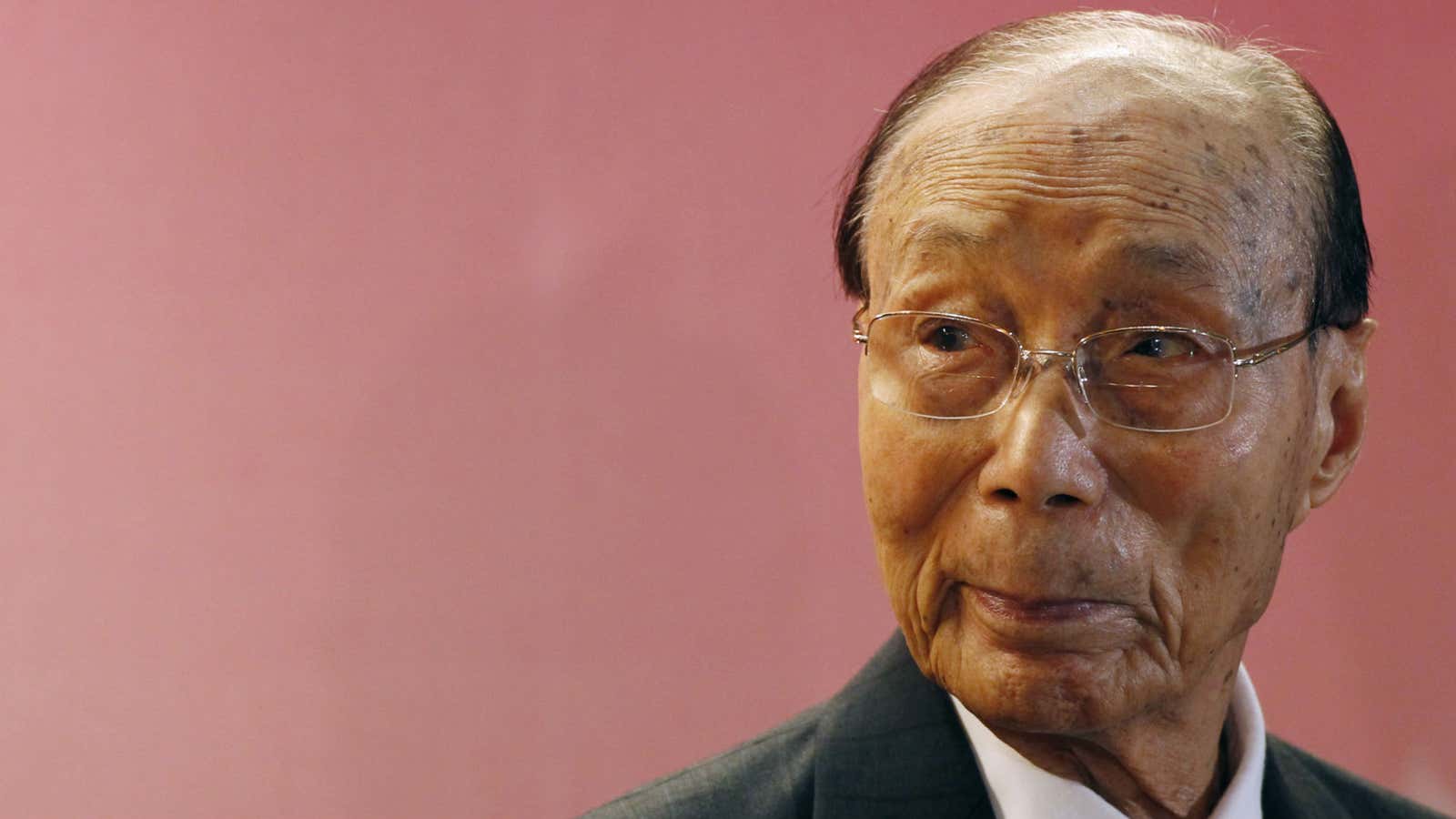The death of 107-year-old Hong Kong entertainment mogul Run Run Shaw, often credited as the creator of the modern kung fu film genre, is the latest sign of the decline of the city-state’s once vibrant film industry.
Shaw, who died in his home on Jan. 7, was best known for his Shaw Brothers film studio—home to kung fu classics like “Five Fingers of Death,” “The One-Armed Swordsman” and nearly 1,000 others. Shaw’s gritty, low-budget martial arts dramas explored themes of loyalty and sacrifice, inspiring the work of director Quentin Tarantino as well as hip hop group the Wu-Tang Clan.
The kung-fu dramas represented the heyday not just of Shaw’s studio but the entire Hong Kong film industry. A former employee of Shaw Brothers founded Golden Harvest Films and signed Bruce Lee, whose rise to fame further put Hong Kong cinema on the map in the 1970s and 1980s.
By the late 1990s, Hong Kong’s film industry had slowed dramatically and has largely failed to recover. Local film production has fallen from around 200 movies a year in the mid-1990s to 55 in 2005. To survive, most Hong Kong studios collaborate with mainland counterparts and target mainland audiences, who make up the world’s second largest movie market by box office sales. Hong Kong-made movies—once characterized for their populist bent, graphic imagery, and use of Cantonese instead of Mandarin—are now increasingly subject to Chinese censorship.
Thus, while Kung fu films are seeing something of a resurgence, it’s often through kitschy, over-the-top films like “Journey to the West: Conquering the Demons,” China’s top grossing film in 2013. The film by Hong Kong directors Stephen Chow and Derek Kwok, is a reinterpretation of a Chinese literary classic that combines martial arts, comedy, and period drama fantasy. That’s a far cry from Shaw’s gritty halcyon days.
